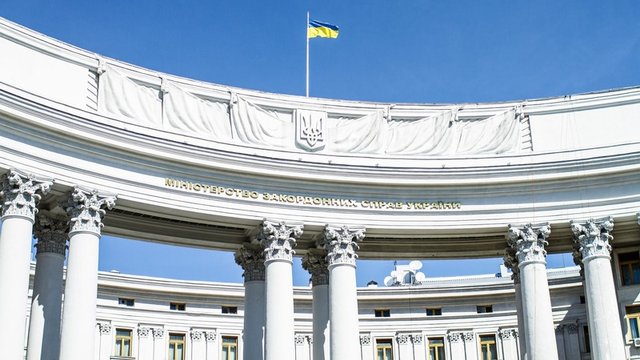Weakening in Chisinau could facilitate spread of hybrid Russian influence, increase risks for Ukraine's southern regions – Foreign ministry

Ukraine's Foreign Affairs Ministry has said the political weakening of Chisinau could create a basis for the spread of Russian hybrid influence, which could in the future be dangerous for Ukraine's southern regions.
"We see that the Kremlin regime is 'replicating' the practice of federalization relative to other states. Therefore, it is important for us that the political forces in Moldova could, acting within the legal framework, find a common solution, no matter how difficult it may be, because the political weakening of Moldova can create a favorable 'bridgehead' for the spread of Russian hybrid influence and interference in internal processes, both inside and outside the Republic," Foreign Ministry spokeswoman Kateryna Zelenko told the Kyiv-based Interfax-Ukraine news agency on Wednesday.
Zelenko said that European, democratic Moldova is critically important for the Ukrainian state.
"We are on the side of the people of Moldova and respect their choice, and therefore do not question the decision of the Moldovan parliament. At the same time, we must also respect the decision of other state institutions of the country. That is why we call on all political players in the Republic of Moldova to resolve disputes through political dialogue, avoid forceful confrontation and eventually find a balanced solution that stabilizes the situation and will contribute to the state's progress," she said.
Zelenko said Kyiv is closely monitoring situation.
She said Foreign Minister Pavlo Klimkin is in touch with western partners in the EU and the United States regarding the development of the situation in Moldova, adding that Ukraine's Special Representative for Transdniestrian conflict settlement Viktor Kryzhanovsky is in Chisinau, where he meets with political process participants.
"We also see the increased presence of the Russian Federation on the territory of Transdniestria. If we now allow the Kremlin regime to deploy its hybrid maneuver inside Moldova, then in the future this will be dangerous for Ukraine's southern regions," she said.
As reported, Maia Sandu, leader of the Right Party for Action and Solidarity, was appointed by the Parliament on June 8 as Prime Minister of Moldova. However, the Constitutional Court declared decisions of the parliament illegal. On June 9, the court temporarily removed President Igor Dodon from office, giving Ex-Prime Minister Pavel Filip the authority to dissolve parliament. He immediately signed a decree dissolving parliament and setting a date for early elections on September 6.
On June 9, Moldova's parliament approved the composition of the new government and declared the country a "captured state," which must be released. This happened after the Constitutional Court ruled that the president is obliged to dissolve the parliament and set a date for early elections, because within 90 days after the approval of the election results, the parliament failed to form a new government.
The Socialist Party and the right-wing ACUM political bloc believe that the allotted term has not expired, since the Constitution states the term of three months, and not 90 days.








